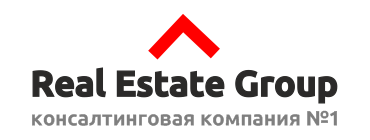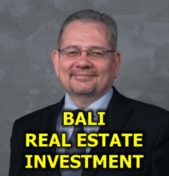YouTube
Podcasts
MAVE | Apple Podcasts | Google Podcasts | Spotify |Яндекс Музыка | VK | SoundStream | Deezer | Castbox | Overcast | Pocket Casts | Podcast Addict
Interested in investing in Seoul Real Estate?
Write to us on WhatsApp and we will select the best options for you. Everyone buys from us!
Investing in real estate can be a lucrative opportunity for foreign citizens looking to diversify their portfolio and gain exposure to different markets. South Korea, specifically the capital city of Seoul, has been a popular destination for real estate investment due to its strong economy, stable political environment, and high demand for properties. In this article, we will discuss two strategies for investing in real estate in Seoul: purchasing at an early stage of construction for resale and purchasing for leasing.
Strategy 1.
Purchase of Residential or Commercial Real Estate at an Early Stage of Construction with Subsequent Resale.
One strategy for investing in real estate in Seoul is to purchase properties at an early stage of construction with the intention of reselling them for a profit. This approach involves identifying promising locations and upcoming developments and purchasing properties in those areas before construction is complete. The idea is to take advantage of the lower prices at the early stage of construction and sell the property once the construction is complete and the value has appreciated.
Step 1. Research the Market.
The first step in this strategy is to conduct market research to identify promising locations and upcoming developments. This involves studying the trends in the real estate market, looking at data on population growth, job growth, and economic indicators, as well as examining the demographics of the target market. This information can be obtained from various sources, including government reports, real estate websites, and local newspapers.
Step 2. Identify Properties.
Once a promising location has been identified, the next step is to identify specific properties that are being developed in that area. This can be done through various means, such as contacting developers or real estate agents, attending property expos and seminars, and conducting online research.
Step 3. Purchase the Property.
After identifying the property, the next step is to negotiate the purchase price with the developer or seller. It is important to ensure that the terms of the contract are clear, and that the buyer is protected in case of any unforeseen events, such as delays in construction or changes to zoning regulations.
Step 4. Monitor Construction Progress.
During the construction phase, it is important to monitor the progress of the project and ensure that it is on track for completion. This involves regular communication with the developer or contractor, visiting the site, and staying up to date with any changes to the timeline or budget.
Step 5. Resell the Property.
Once the construction is complete and the property has appreciated in value, the final step is to resell the property for a profit. This involves finding a buyer and negotiating a price that reflects the current market conditions and the value of the property.
Strategy 2.
Purchase of Residential and Commercial Real Estate with Subsequent Leasing.
Another strategy for investing in real estate in Seoul is to purchase properties for the purpose of leasing them out to tenants. This approach involves identifying properties in high-demand areas and renting them out to generate a steady stream of rental income.
Step 1. Research the Market.
The first step in this strategy is to conduct market research to identify areas with high demand for rental properties. This involves studying the trends in the real estate market, looking at data on population growth, job growth, and economic indicators, as well as examining the demographics of the target market. This information can be obtained from various sources, including government reports, real estate websites, and local newspapers.
Step 2. Identify Properties.
Once a promising location has been identified, the next step is to identify specific properties that are suitable for leasing. This involves looking at factors such as the size, location, and condition of the property, as well as the rental rates in the area.
Step 3. Purchase the Property.
After identifying the property, the next step is to negotiate the purchase price with the seller. It is important to ensure that the terms of the contract are clear, and that the buyer is protected in case of any unforeseen events, such as damage to the property or non-payment of rent by tenants.
Step 4. Renovate and Furnish the Property.
After purchasing the property, it may be necessary to renovate and furnish it to make it attractive to potential tenants. This involves hiring contractors and interior designers to upgrade the property and make it more appealing.
Step 5. Find and Screen Tenants.
Once the property is ready, the next step is to find and screen tenants. This involves advertising the property, conducting interviews with potential tenants, and running background checks to ensure that they have a good credit history and a stable income.
Step 6. Manage the Property.
After finding tenants, the next step is to manage the property, which involves collecting rent, handling repairs and maintenance, and resolving any disputes that may arise. This can be done by the investor or by hiring a property management company to handle these tasks.
Step 7. Generate Rental Income.
The final step in this strategy is to generate rental income from the property. This involves setting competitive rental rates based on market conditions, ensuring that the property is well-maintained, and providing excellent customer service to tenants to encourage them to renew their leases.
Considering the two strategies suggested above, we would like to explain in detail:
- What types of real estate are offered in Seoul for investment;
- How much money is needed;
- What the profit can be;
- Who is the best person to buy real estate from;
- What the risks might be.
Strategy 1.
1.1. Types of Real Estate Offered.
In Seoul, there are various types of real estate that can be invested in, including villas, houses, apartments, and commercial real estate. However, for this strategy, the focus is on purchasing properties at an early stage of construction, such as off-plan apartments or commercial buildings.
1.2. Investment Amount.
The minimum amount needed for this strategy varies depending on the type of property and location. Generally, the minimum amount would be around 100 million KRW ($90,000 USD) for a small apartment or commercial unit, while the maximum amount could go up to several billion KRW ($millions USD) for larger developments.
1.3. Potential Profit.
The potential profit for this strategy comes from buying at an early stage of construction and then selling the property once construction is complete. The profit depends on the location, demand, and market conditions, but it can range from 10% to 30% or more.
1.4. Best Sellers.
The best sellers for this strategy are typically real estate developers or builders who are looking to sell off-plan properties before or during construction. It is important to do thorough research and due diligence on the developer's reputation, track record, and financial stability before making a purchase.
1.5. Risks.
The main risks of this strategy include the possibility of delays or complications during construction, which can lead to unexpected costs and lower profits. Additionally, changes in the market or economic conditions can affect the demand and value of the property.
Strategy 2.
2.1. Types of Real Estate Offered.
For this strategy, residential and commercial real estate can both be considered, including apartments, houses, and commercial properties such as retail or office spaces.
2.2. Investment Amount.
The minimum investment amount for this strategy is also dependent on the type of property and location, but it can start at around 200 million KRW ($180,000 USD) for a small apartment or commercial unit. The maximum investment amount can go up to several billion KRW ($millions USD) for larger properties or multiple units.
2.3. Potential Profit.
The potential profit for this strategy comes from generating rental income from the property. The profit depends on the location, rental rates, and occupancy rates, but it can range from 3% to 10% or more annually.
2.4. Best Sellers.
The best sellers for this strategy can be real estate developers, real estate agents, or private owners. It is important to evaluate the condition, location, and potential rental income of the property before making a purchase.
2.5. Risks.
The main risks of this strategy include the possibility of lower than expected rental income, which can affect the overall profitability of the investment. Additionally, unexpected costs for repairs and maintenance can also impact profits, and there is a risk of property value fluctuations due to changes in the market or economic conditions. It is important to work with a reliable property management company to minimize these risks and ensure that the property is well-maintained and occupied.
As a foreign investor buying, selling, or renting out a residential property in Seoul, there are certain taxes and fees that you should be aware of.
1. Buying Real Estate in Seoul.
When buying a residential property in Seoul, foreign investors are subject to several taxes and fees, including:
- Acquisition tax. This tax is imposed on the value of the property and is payable within 60 days of the acquisition. The tax rate varies from 0.1% to 4%, depending on the property value and location.
- Registration tax. This tax is payable within 60 days of the acquisition and is based on the assessed value of the property. The tax rate is 2% of the assessed value.
- Real estate agent commission. The commission for real estate agents typically ranges from 0.5% to 3% of the purchase price and is payable by the buyer.
2. Selling Real Estate in Seoul.
When selling a residential property in Seoul, foreign investors are subject to the following taxes and fees:
- Capital gains tax. If the property is sold at a profit, the seller is required to pay capital gains tax. The tax rate for non-resident foreigners is 30% of the net profit. However, if a tax treaty exists between the seller's home country and South Korea, the tax rate may be reduced.
- Agent commission. The commission for real estate agents typically ranges from 0.5% to 3% of the sale price and is payable by the seller.
3. Renting out a Property in Seoul.
When renting out a residential property in Seoul, foreign investors are subject to the following taxes and fees:
- Property tax. This tax is payable annually and is based on the assessed value of the property. The tax rate varies depending on the location and value of the property.
- Income tax. Rental income is subject to income tax, which is payable annually. The tax rate varies depending on the amount of rental income earned and the individual's tax status.
- Value-added tax (VAT). If the annual rental income exceeds a certain threshold, VAT may be applicable. The VAT rate is 10% of the rental income.
- Real estate agent commission. The commission for real estate agents typically ranges from one month's rent to 10% of the annual rental income and is payable by the landlord.
It is important to note that tax laws and regulations in South Korea are subject to change, and it is advisable to consult a tax professional or real estate lawyer to ensure compliance with all applicable taxes and fees.
In Seoul, South Korea, there are several governmental and commercial organizations responsible for regulating and registering real estate transactions. These organizations play a crucial role in ensuring that all real estate transactions are conducted legally and transparently.
1. Ministry of Land, Infrastructure, and Transport (MOLIT). MOLIT is a government agency responsible for the management and regulation of land, transportation, and housing in South Korea. MOLIT oversees various aspects of real estate, including zoning, building regulations, and property registration. They are also responsible for overseeing the Real Estate Transaction Information System (RTIS), an online database that provides information on real estate transactions in South Korea.
2. Korea Real Estate Board (KREB). KREB is a non-governmental organization that oversees the real estate industry in South Korea. They provide a range of services, including real estate education, market research, and professional certification for real estate agents. KREB also manages a real estate listing service that provides information on properties for sale or rent in South Korea.
3. Korea Appraisal Board (KAB). KAB is a government agency responsible for conducting property appraisals in South Korea. They provide independent and unbiased property valuations that are used in real estate transactions, including buying, selling, and leasing.
4. Korea Land and Housing Corporation (LH). LH is a government agency responsible for the development and management of public housing in South Korea. They are also involved in the planning and construction of new residential and commercial developments.
5. Real Estate Registration and Appraisal Division (RERAD). RERAD is a division of the Seoul Metropolitan Government responsible for registering and appraising real estate transactions in Seoul. They oversee the registration of property ownership, transfer of property rights, and the issuance of property certificates.
6. Real Estate Appraisal Research Institute (RERI). RERI is a private research institute that provides property valuation services to the real estate industry in South Korea. They also conduct market research and provide real estate data and analysis to government agencies and private companies.
Investors and real estate professionals in Seoul can access the services provided by these organizations to ensure that their real estate transactions are conducted legally and transparently. It is advisable to consult with these organizations or seek guidance from a local real estate professional when conducting real estate transactions in Seoul.
In conclusion, Seoul, South Korea is a promising destination for foreign investors looking to invest in real estate. The city offers a variety of real estate investment opportunities, including residential and commercial properties, and there are two main strategies for investing: purchasing real estate at an early stage of construction for subsequent resale and purchasing real estate for leasing.
When it comes to purchasing real estate in Seoul, investors should be aware of the minimum and maximum investment amounts, as well as the potential profits for each type of property. They should also carefully consider the risks associated with each investment strategy and choose the best option based on their personal goals and risk tolerance.
In terms of taxes and fees, investors should be aware of the various taxes and fees associated with buying, selling, and renting out properties in Seoul. These include registration fees, capital gains taxes, and rental income taxes, among others.
To ensure a successful investment, it is important for foreign investors to understand the regulations and registration procedures for real estate transactions in Seoul. Several governmental and commercial organizations are responsible for overseeing these transactions, including the Ministry of Land, Infrastructure, and Transport, the Korea Real Estate Board, and the Korea Appraisal Board, among others.
Overall, investing in real estate in Seoul can be a profitable and rewarding experience for foreign investors, but it is important to do thorough research and seek guidance from professionals to ensure a successful investment.
Interested in investing in Seoul Real Estate?
Write to us on WhatsApp and we will select the best options for you. Everyone buys from us!





